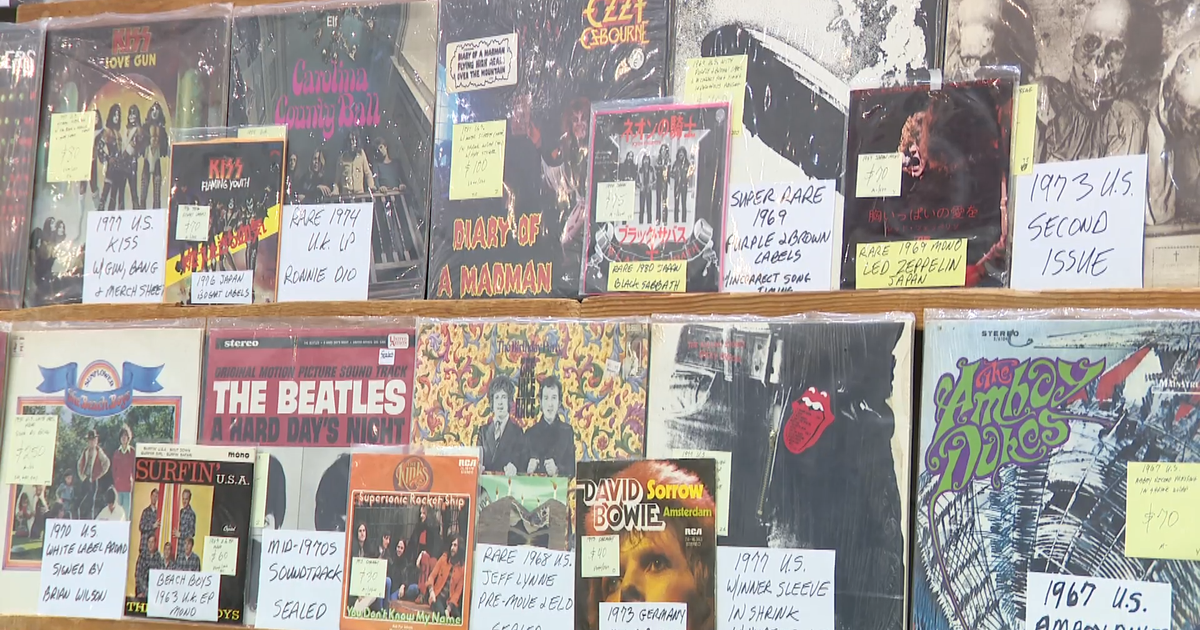Maryland State Archives Running Out Of Space
By DAVID HILL
The Washington Times
ANNAPOLIS, Md. (AP) -- The Maryland State Archives collection is among the largest in the country with nearly 400 years of history, including Colonial-era paintings, keepsakes of the state's governors, and thousands of land, court and genealogy records.
With all that history, the Archives has run out of space.
The agency first filled its Annapolis headquarters to capacity in 2000, then leased and filled a warehouse. It leased a second warehouse and a third before brokering a deal to store some of its property at the Baltimore City Archives.
All of the facilities are now full, and state archivists have been pushing for more space since 2005.
Agency officials say that the lack of space and "substandard" conditions at the warehouses have damaged some of the older items, and that employees are trying to avoid losing their grip on history.
"I hope that as the economy turns around we're going to be able to request some more conservation money," said Deputy State Archivist Tim Baker. "We really need to finally own up to our responsibility to take care of these treasures and store them adequately."
Mr. Baker said well-maintained archives serve a valuable purpose in a democracy.
"I don't think we have as much appreciation as we should for the fact that it wasn't that long ago that kings and military people ruled and decreed," he said. "We decided a different course and said that we're going to write it down and document the rights and responsibilities of people."
The Maryland State Archives was formed in 1934, but has grown exponentially in the past 20 years because it has taken on greater numbers of documents from increasingly records-conscious county and local governments.
Unlike many other states, the Maryland State Archives stores not just state and privately owned materials, but also those from local governments. Archivists say that policy has helped preserve many records and other items that otherwise might have been thrown away or left to rot in a town hall.
State archivists rarely have shied away from accepting outside contributions.
In 1988, they took on the cash-strapped Peabody Institution's art collection. Years later, they added a collection of local newspapers dating as far back as the 1700s from the Library of Congress.
While the mention of archives may conjure up visions of antique art and valuable relics, the majority of Maryland's more than 340,000 cubic feet of holdings is composed of paper records.
Most are kept for a set period of time until legal disposal is permitted, but about 5 percent to 10 percent are deemed to have permanent value and are kept in the collection. These often include court documents, property deeds, birth and marriage records and other materials that have historical worth or might be referenced in the future.
Taking care of all those documents can be tough. About half of them are stored in warehouses that archivists say are plagued by bugs, mold, bad lighting and inadequate temperature controls that make them unbearably hot in the summer and freezing cold in the winter.
One such warehouse in Anne Arundel County includes paintings and land records from the 1800s and items owned by William Donald Schaefer, who served a total of 32 years as mayor of Baltimore and as the state's governor and then comptroller.
"It's not as much about temperature as it is consistency," said Kevin Swanson, director of the agency's constituent and interagency services. He added that ideal conditions are about 65 degrees and 55 percent humidity. "When you don't have that, you're going to have problems," he said.
Archivists have had to stop accepting items because of the space crunch and instead encourage local governments to move toward keeping electronic records.
The policy backfired last year when heavy rains in Prince George's County led to flooding that destroyed about 2,400 cubic feet of county records in Upper Marlboro. The State Archives would have accepted the records if it had the space, Mr. Baker said.
"I don't really have an option," he said. "Even if I could just magically snap my fingers and go out and rent another building, we don't have the money to do that."
Desperate for more space, archives officials have testified before Senate and House budget committees. They originally hoped for a new building -- which Mr. Baker said could have cost as much as $25 million -- but have moved to the less-expensive option of buying a used, "semidistressed" building. The agency's troubles are not limited to storage. State budget cuts have reduced the Archives' finances and nearly eliminated its art conservation budget.
One of the ways archivists have cut costs is by asking the state facilities and art galleries that host much of the state's artistic property to pay for upkeep.
Mr. Swanson said the Maryland State Archives gets 15 percent to 20 percent of its funding from the state. The rest comes from fundraising, grants and money the agency earns as a printing service for businesses.
It also charges fees for the thousands of files it retrieves for residents each year. State funding for the Archives has been left mostly to subcommittees on the Senate Budget and Taxation and House Appropriations committees. Lawmakers are quick to say that the archives have tremendous value, but many say the state simply doesn't have the money at a time when it has many infrastructure needs.
"You've got to handle the things that you've got to handle now and just wait and see what happens," said Delegate Gail H. Bates, Howard Republican, who serves on the Appropriations public safety and administration subcommittee, which hears the Archives' testimony each year. "As much as I think that it's important to do something with the archives, it's not really what I would call a basic need right now."
Delegate John F. Wood Jr., who is vice chairman of the subcommittee, said the Archives had a near-miss a couple of years ago when it was in the running to receive an Annapolis building vacated by Maryland State Police barracks. The space went to another agency.
He said lawmakers should look more closely at funding a new facility and doesn't expect the Archives to give up its fight.
"It's something I think that we should be looking at -- and not keep putting it off and putting it off," said Mr. Wood, St. Mary's Democrat. "I'm sure they're going to be back every year until they get it."
Information from: The Washington Times, http://www.washtimes.com
(Copyright 2012 by The Associated Press. All Rights Reserved.)







